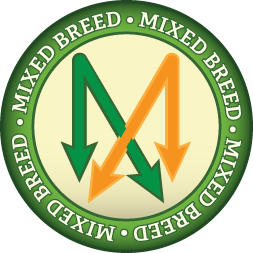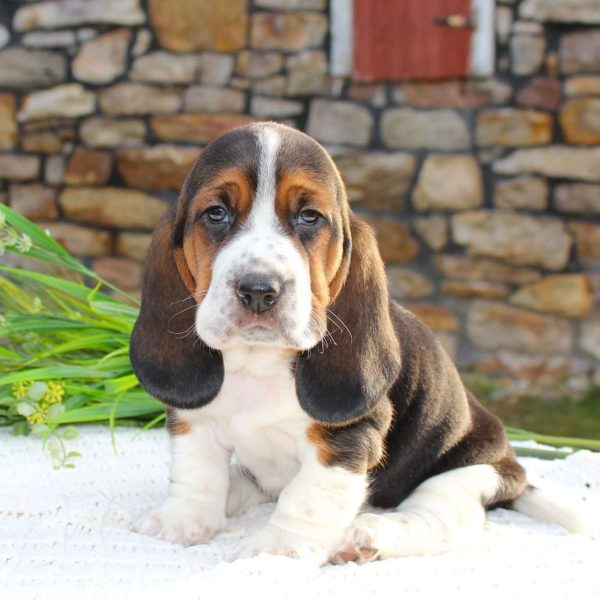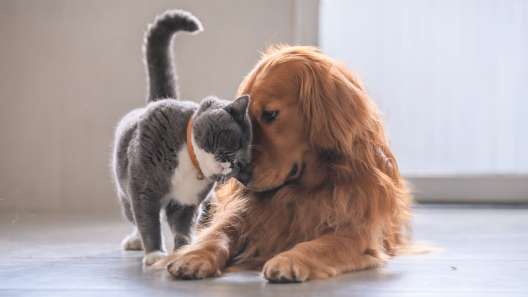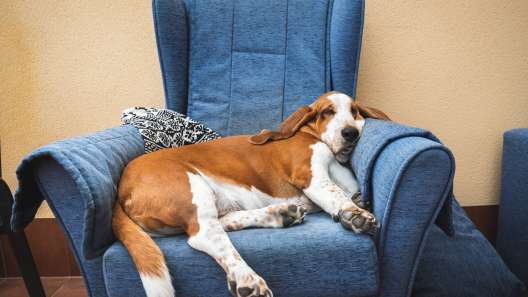
-
Activity Level:
low
-
Shedding Level:
moderate
-
Grooming Level:
moderate
-
Trainability:
moderate
-
Good for Novice Owners:
moderate
-
Adaptability:
high
-
Kid/Pet Friendly:
often
-
Prey Drive:
low
-
Watchdog:
aware
- Average Size: Medium
Basset Hound Mix Dog Breed Information
Overview
Temperament
Adaptability
Health
Owner Experience
Grooming
Activity Level
Size
Life Span
The Basset Hound Mix is a cross between a Basset Hound and another dog breed. Because a mixed-breed dog can take on any combination of traits from one or both of the parents, it’s important to talk to the breeder about the other parent breed.
Should a Basset Hound Mix take more after their Basset Hound parent, they’ll likely be a medium-sized dog that fits in well with families. They’re also likely to have a sweet nature and a playful personality.
Basset Hounds are known to be loyal sweethearts that bond closely with their families and are devoted to them. They are affectionate and playful. They tend to get along well with other dogs and children.
But, they do tend to have a high prey drive, so they will need some extra socialization with any smaller pets in the household. You should be able to expect something similar in a Basset Hound Mix. The other parent breed could throw some other traits into the mix, so you do want to ask the breeder about them.
You can also meet the mother dog in person to get another perspective on what temperament to expect in your Basset Hound Mix. However, once you get your puppy home, it’s up to you to continue training and socializing them to make sure they maintain a great temperament as they grow.
Basset Hounds tend to be highly adaptable dogs. They do well in apartments as well as larger homes. As with any dog breed, they’re sensitive to heat and extreme cold. They’re okay with some alone time, but they love their families and should not be left alone for long periods of time.
Due to their high prey drive and strong nose, they should only be let off-leash in secure areas. After all, they are a hound dog! Although the other parent breed could affect some of these characteristics, you still want to be prepared for a Basset Hound Mix that takes after their Basset Hound parent.
Are mixed-breed dogs healthier? They can be, but that is not a guarantee. A mixed-breed dog can inherit the potential health concerns from one, both, or neither of their parent breeds. From the Basset Hound side, some potential health concerns for a Basset Hound Mix could include hip dysplasia, elbow dysplasia, and glaucoma.
Because of their long, droopy ears, Basset Hounds are also more prone to ear infections. If a Basset Hound Mix also has droopy ears, then they will also be more prone to developing ear infections.
Basset Hounds are also at a higher risk for bloat. Because bloat in dogs can become dangerous quickly, it’s important to know the symptoms so you know when to get help and also how to prevent it.
The other parent breed could add some other potential health concerns into the mix, so it’s important to talk to the breeder about them. Also, reputable breeders screen their stock to avoid passing on issues to puppies, so you should be asking about the genetic and health history of both of the parents anyway.
Although Basset Hounds can be a good fit for first-time dog owners, they can be stubborn. As such, puppy training classes are recommended. The other parent breed could be more easily trainable, but you will still want to be prepared for a potentially stubborn Basset Hound Mix. Regardless of owner experience or overall trainability of the dog, puppy training classes are still a good idea because they often offer opportunities to socialize a puppy.
A mixed-breed dog can inherit a coat similar to one of their parents or a coat that is truly a blend of both. If a Basset Hound Mix ends up with a Basset Hound coat, they will shed moderately year-round. Weekly brushing, regular cleaning of the face wrinkles, and the occasional bath are usually enough to keep their coat looking great. The other parent breed in the mix could result in more or less required grooming.
Regardless of coat type, you will need to care for your Basset Hound Mix’s nails, ears, and teeth. Trimming nails on a monthly basis is usually enough to keep them from growing too long. But, some dog’s nails grow more quickly than others or don’t wear down as much naturally, so you may need to cut your dog’s nails more often.
Weekly ear checks with careful cleanings as needed can help prevent ear infections. Since a Basset Hound Mix is likely to have droopy ears, they will be more prone to ear infections because their ears are more likely to trap dirt and moisture. By doing regular checks and carefully cleaning your dog’s ears when it’s necessary, you can keep ear infections at bay. Plus, if anything is happening, you can catch it early and get to the vet.
Practicing good dental care for dogs is also important. Unfortunately, many dog owners overlook this, which is why gum disease is one of the most common health issues in dogs. By using an enzyme toothpaste or brushing teeth every day, you can help prevent painful dental diseases later in life.
The Basset Hound is a playful dog that does not require a lot of exercise to be happy and healthy. Daily walks plus some playtime are usually enough for a Basset, but they’re also usually up for more activity if you are.
The other parent breed in the cross could result in a higher-energy dog in a Basset Hound Mix. It’s important to talk to the breeder about them, so you know whether you need to prepare for a potentially high-energy dog.
A fully-grown Basset Hound tends to stand 13-15 inches tall and weigh 40-65 pounds. The other parent breed could affect this and potentially result in a smaller or larger dog.
Asking the breeder about the other parent breed and meeting the mother dog can give you a better idea of what size to expect in a Basset Hound Mix.
A Basset Hound typically lives 10-12 years. Although the other parent breed may affect this slightly, you should be able to expect something similar in a Basset Hound Mix.









